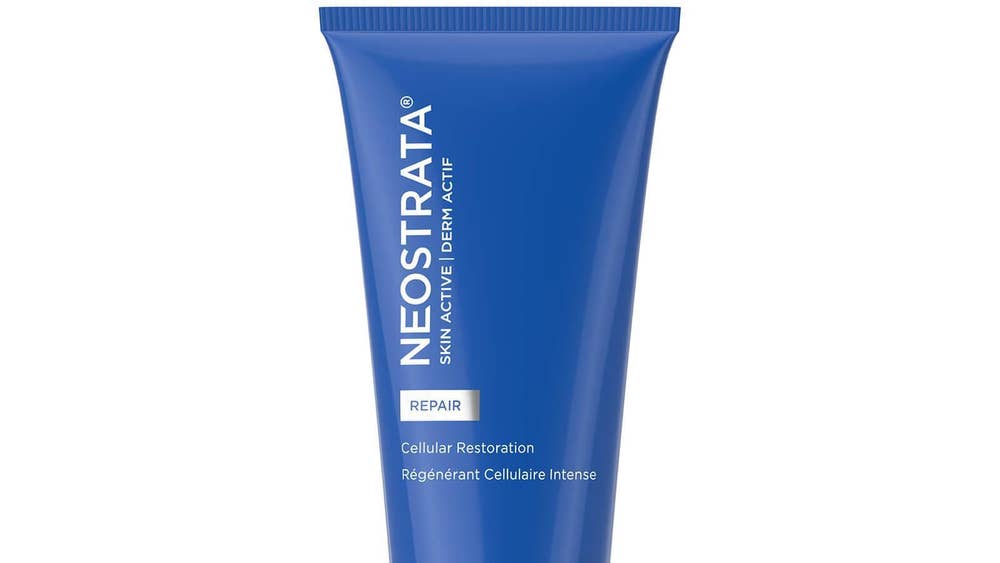
Face Off: How to Care for Your Skin While Wearing a Face Mask
By Sarah Young
The ongoing coronavirus crisis has already impacted so many elements of our daily lives but as we take the initial first steps towards coming out of lockdown, more adjustments are going to have to be made.
The latest of which involves wearing a face-covering in places where it is difficult to stay 6 feet apart from people outside of your household, whether that be on public transport or during your weekly trip to the supermarket.
Whether you decide to make your own cloth covering at home or buy a mask online, you are likely to soon discover that, in addition to keeping you safe, face masks can cause some less than desirable and uncomfortable side effects when it comes to your skin.
Since the beginning of the pandemic, news stories and social media feeds have been filled with images of health care workers who are dealing with skin problems caused by wearing medical grade masks for hours on end, with many seeing increases in breakouts, rashes, and skin irritation. And while wearing a cloth face covering will cause nowhere near the levels of discomfort experienced by frontline workers, for some having to wear a mask can result in flare ups and aggravate pre-existing skin conditions.
According to leading dermatologist Dr Anil Budh-Raja, face coverings can cause a multitude of problems for the skin, including rashes due to friction from rubbing, acne and eczema.
“If any part of the mask touches active acne, this can also aggravate the acne and create more inflamed spots, while severe eczema and psoriasis can also worsen,” he explains, adding that edges of poor quality masks may also be sharp or abrasive and can cause substantial irritation, sores, or even cuts.
Dr Anjali Mahto, consultant dermatologist and author of The Skincare Bible, agrees, adding that wearing masks can lead to an accumulation of sweat, which can lead to blocked pores.
Here, The Independent speaks to two leading dermatologists to find out how wearing a face covering might be affecting your complexion and what you can do to help keep your skin clear and healthy.
Making your own mask? Some fabrics are better than others
The good news is, there are a number of things you can do to prevent your face mask from causing any damage to your skin.
Firstly, it is important to consider the material that your mask is made from, says Dr Budh-Raja. Unless you are a healthcare worker on the frontline, the government recommends wearing a cloth face covering (so that N95 and surgical masks can be reserved for those who really need them).
Ideally, these should be made from tightly woven cotton instead of synthetic fabric, as they will feel more breathable and softer on the skin. If you’re using a homemade cloth face mask, you should also wash it regularly, as it may be absorbing your skin’s natural oils which could lead to breakouts.
You can read more about how to make a DIY make using items you already have at home here.
Prevention is better than cure
To help minimise the effects of wearing a face mask, you could also consider using an ointment or salve to protect sensitive areas from friction or chafing, Dr Mahto says. Similarly, it can be beneficial to apply a barrier cream or petrolatum jelly, such as Aquaphor or Vaseline, as an occlusive to cover up broken areas of skin overnight.

Dr Mahto recommends that anyone experiencing itching or an eczema-type rash purchase some OTC Eumovate Cream 0.05 per cent, which is a mild steroid, and apply to any areas of inflamed skin twice daily for a period of seven days. If there is still no improvement, you should seek medical advice from your GP.
Change up your skincare routine
For day-to-day care, she also stresses the importance of ensuring your skin is properly hydrated as this will help improve the barrier function of the skin. To prevent your skin from drying out, stick to unscented or fragrance-free cleansers like La Roche Posay’s Toleriane Dermo Cleanser or Cerave’s Hydrating Cleanser.
While it can be tempting to cleanse immediately before and after wearing a face mask, Dr Mahto says it is best to limit yourself to cleansing twice a day, once in the morning and evening, as any more can lead to further dryness, irritation, and redness, especially for those with dry, sensitive or mature skin types.

It is also important to pat your face dry with a towel to dry it after cleansing rather than rubbing the skin and using a moisturiser to prevent water loss. For this, Dr Budh-Raja suggests investing in a cream that contains ceramides and hyaluronic acid as both these ingredients are highly moisturising, while ceramides create a good barrier layer on the skin.
Similarly, creams containing anti-inflammatory ingredients such as liquorice extract, green tea, colloidal oatmeal, resveratrol and turmeric can help soothe irritated skin.

If your skin is experiencing irritation from wearing a face mask, Dr Mahto advices taking a break from using any harsh scrubs or chemical exfoliators that may worsen the problem.
Adopt a minimalist makeup bag
Face masks create a humid environment that can affect sebum production in your skin, leading to clogged pores and breakouts. If you are noticing breakouts around your nose, mouth, and chin, it might help to minimise the amount of makeup you wear, particularly foundations and concealer with heavy formulations, underneath your mask.
“You don’t need to avoid makeup but it’s best to use breathable make up with a water based foundation to prevent clogging of pores under the mask,” says Dr Dr Budh-Raja. “It can sometimes get warm under the mask, so keep makeup light.”
You can read more about how the coronavirus lockdown is impacting your skin here.







